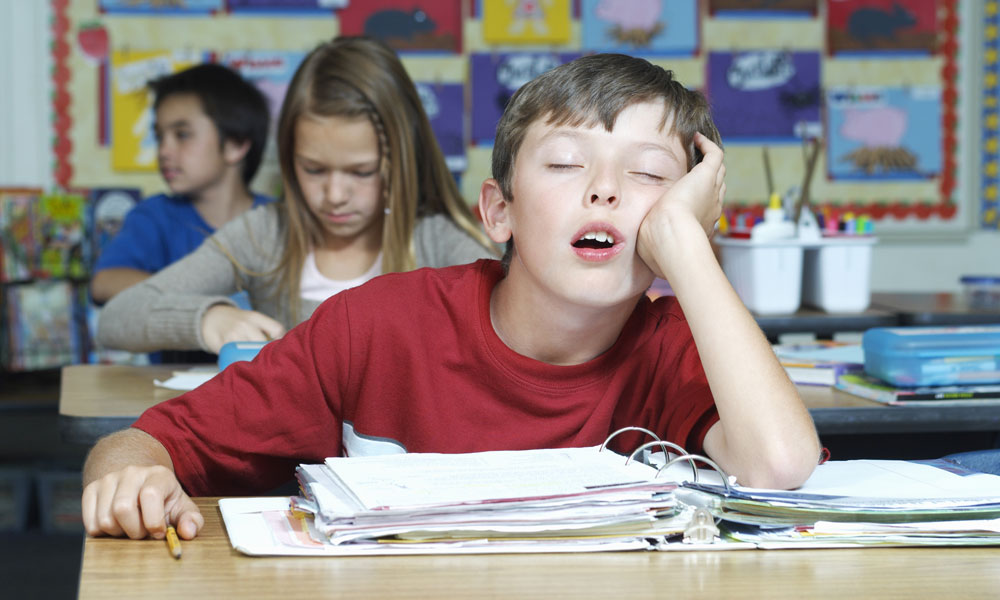
Sleep Foundation Finds Kids Aren’t Getting Enough Shut-Eye
In a new report, the National Sleep Foundation looked at how much sleep children are getting (hint: it’s not enough) and how parents can help them get more. A major culprit: electronic devices in kids’ bedrooms.
Parents play a critical role in their children’s sleep habits, according to the National Sleep Foundation’s (NSF) latest “Sleep in America” poll, which surveys Americans’ sleep health and behaviors.
We found that when parents take action to protect their children’s sleep, their children sleep better.
“For children, a good night’s sleep is essential to health, development, and performance in school,” Kristen L. Knutson, a professor and researcher at the University of Chicago and a “Sleep in America” poll task force member, said in a statement. “We found that when parents take action to protect their children’s sleep, their children sleep better.”
The survey, which was released this week in connection with NSF’s National Sleep Awareness week campaign running through March 9, found that while more than nine out of 10 parents know the value of a good night’s sleep for their children, many kids are getting less than the recommended amount of shut-eye.
Parents reported children ages 6 to 10 are getting roughly 8.9 hours of sleep, for example. That’s less than the NSF’s recommended 10 to 11 hours. Children ages 11 to 17 were also reported to be getting less than the 8.5 to 9.5 hours a night that NSF recommends.
How can parents encourage their kids to get more sleep? By getting them to turn off electronic devices, model healthy sleep habits, and enforce sleep-related rules.
Roughly three out of four kids have at least one electronic device in their bedrooms, and 34 percent of parents reported their child sometimes leaves an electronic device on while sleeping. The survey found that when parents enforce rules on how late their kids can use a smartphone or cellphone, those kids get an average of 0.8 hours more sleep a night. In general, children get about 1.1 more hours of sleep when their parents enforce rules about bedtime.
The poll also uncovered a correlation between parents’ sleep habits and those of their kids. About 65 percent of the time, when parents had at least one electronic device in their bedroom, so did their kids. But only 24 percent of children have electronics in their bedrooms if their parents do not.
Conducted every year since 1991, NSF’s “Sleep in America” poll has looked at a range of issues affecting Americans’ sleep habits, including the correlation between exercise and sleep, the sleep habits of transportation workers, and the effects of aging on sleep.
(Moodboard/Thinkstock)






Comments